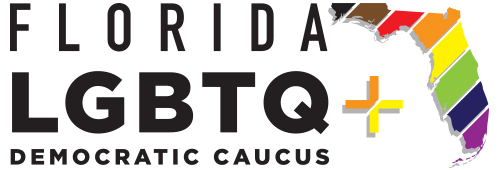Federal Court Issues Ruling Confirming Unconstitutionality of Florida’s Same-Sex Marriage Ban
The federal trial court with jurisdiction over the issue has issued a clarification of its earlier ruling on gay marriage in Florida.
The January 1, 2015 order in Brenner et al v. Scott, etc., et al, “holds unconstitutional the Florida ban on same-sex marriage,” “does not require the Clerk to issue licenses to other applicants,” “but as set out in the order that announced issuance of the preliminary injunction, the Constitution requires the Clerk to issue such licenses. As in any other instance involving parties not now before the court, the Clerk’s obligation to follow the law arises from sources other than the preliminary injunction.”
The case involves a same-sex couple seeking a marriage license in Washington County in northern Florida. The consolidate case also includes other same-sex couples married in other jurisdictions wishing to see their marriages legally recognized in Florida, and an association representing similar individual.
The order further notes, “There should be no debate, however, on the question whether a clerk of court may follow the ruling, even for marriage-license applicants who are not parties to this case.”
The full ruling is published below, and is available here, courtesy of Equality Florida.
Additional resources:
Blog Statement, Equality Florida
****
IN THE UNITED STATES DISTRICT COURT FOR THE
NORTHERN DISTRICT OF FLORIDA
TALLAHASSEE DIVISION
JAMES DOMER BRENNER et al.,
Plaintiffs,
v.
RICK SCOTT, etc., et al.,
Defendants.
CONSOLIDATED CASE NO. 4:14cv107-RH/CAS
_________________________________/
ORDER ON THE SCOPE OF THE
PRELIMINARY INJUNCTION
In this consolidated case, the plaintiffs challenge provisions of the Florida
Constitution and Florida Statutes banning same-sex marriage. Two plaintiffs are
unmarried; they seek issuance of a Florida marriage license. The other plaintiffs
are individuals (and an association representing individuals) who were married in
other jurisdictions and seek recognition of their marriages in Florida. The
defendants, all in their official capacities, are the Secretary of the Florida
Department of Management Services, the Florida Surgeon General, and the Clerk
of Court of Washington County, where the two unmarried plaintiffs reside.
A preliminary injunction is in place and has been for more than four months.
It holds unconstitutional the Florida ban on same-sex marriage. Now the Clerk has
filed an emergency motion to clarify the preliminary injunction. She asks whether
the injunction requires her to issue marriage licenses to all qualified same-sex
applicants or only to the two unmarried plaintiffs.
The founders of this republic adopted a Constitution and a system for its
enforcement. When there are disagreements about what the Constitution requires,
those who are affected may seek a definitive ruling in court. These plaintiffs did
that in this case. The Secretary and Surgeon General—as duly empowered
officials of the State of Florida, represented by the Attorney General—joined issue.
So did the Clerk. The result was an explicit ruling that Florida’s same-sex-
marriage ban is unconstitutional.
The United States Supreme Court and federal courts of appeals had stayed
similar rulings in other cases. I stayed the ruling in this case while those stays
were in effect and for 91 more days—long enough to allow the defendants to seek
a further stay in the United States Court of Appeals for the Eleventh Circuit and, if
unsuccessful there, in the United States Supreme Court. The defendants did that.
They lost. The United States Supreme Court allowed the ruling in this case to take
effect.
History records no shortage of instances when state officials defied federal
court orders on issues of federal constitutional law. Happily, there are many more
instances when responsible officials followed the law, like it or not. Reasonable
people can debate whether the ruling in this case was correct and who it binds.
There should be no debate, however, on the question whether a clerk of court may
follow the ruling, even for marriage-license applicants who are not parties to this
case. And a clerk who chooses not to follow the ruling should take note: the
governing statutes and rules of procedure allow individuals to intervene as
plaintiffs in pending actions, allow certification of plaintiff and defendant classes,
allow issuance of successive preliminary injunctions, and allow successful
plaintiffs to recover costs and attorney’s fees.
The Clerk has acknowledged that the preliminary injunction requires her to
issue a marriage license to the two unmarried plaintiffs. The Clerk has said she
will do so. In the absence of any request by any other plaintiff for a license, and in
the absence of a certified class, no plaintiff now in this case has standing to seek a
preliminary injunction requiring the Clerk to issue other licenses. The preliminary
injunction now in effect thus does not require the Clerk to issue licenses to other
applicants. But as set out in the order that announced issuance of the preliminary
injunction, the Constitution requires the Clerk to issue such licenses. As in any
other instance involving parties not now before the court, the Clerk’s obligation to
follow the law arises from sources other than the preliminary injunction.
For these reasons,
IT IS ORDERED:
The motion to clarify, ECF No. 99, is granted. The preliminary injunction is
clarified as set out in this order.
SO ORDERED on January 1, 2015.
s/Robert L. Hinkle
United States District Judge
